One month on from the sudden death of music industry impresario Michael Gudinski, artists including Paul Kelly, Jimmy Barnes and Deborah Conway reflect on his extraordinary life.
WITH ANDREW McMILLEN
Michael Gudinski picked the name Mushroom Records back in 1972 because it had an organic, edgy, psychedelic vibe to it. As brand names go, it was both memorable and enduring: next year, Mushroom Group will celebrate its 50th anniversary, having put down deep roots into every aspect of the Australian music business.
But mushrooms grow best in the dark, out of sight and perhaps out of mind. That wasn’t Gudinski’s style at all. His favourite place to be was in the thick of things, always: cutting deals, working the phone, finding angles, toasting successes and firing up those around him to achieve the highest quality outcome that was humanly possible.
When he died suddenly at his home in Melbourne on March 2, 2021, aged 68, the Australian music industry didn’t just mourn the passing of a man; there was a deep sense that something elemental was gone, like losing the rain.
Here, some of those who knew him best share with Review some of their favourite memories of Gudinski.
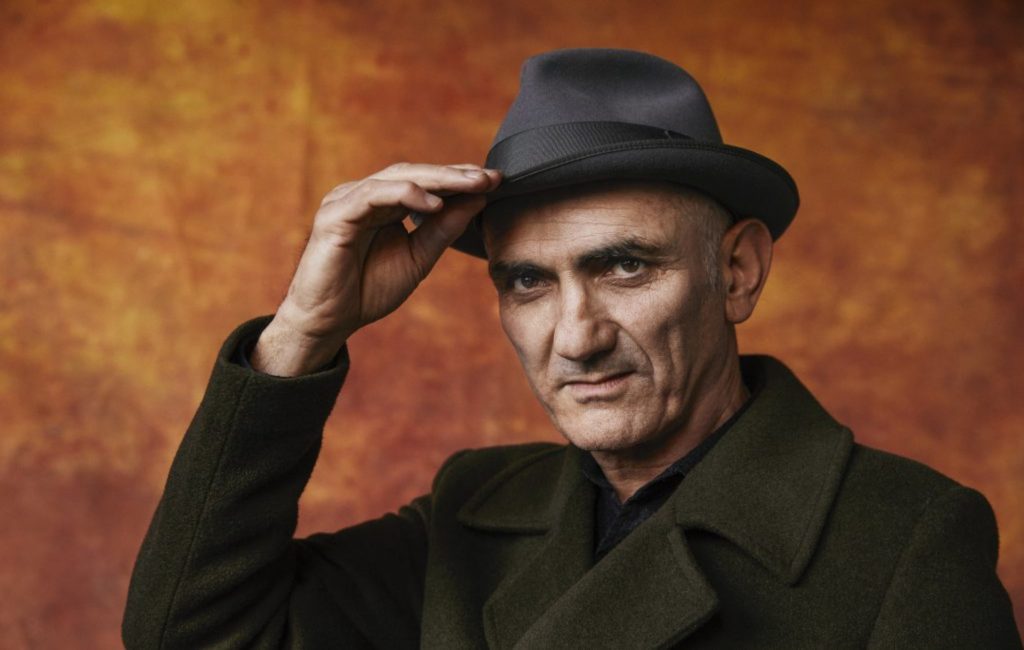
PAUL KELLY
There’s a Yiddish word I love – naches – which I understand to mean great joy and pride in the achievements of someone close to you. Parents have it for children when they do something special, and friends for friends, and so on. Michael had it in spades and it was closely tied with his notion of family. His love for his own family – his wife and children – was always unashamedly on display.
Over the years he created ever-widening family circles. His family of employees whom he encouraged and stayed loyal to, and they, in turn, to him. The family of artists he recorded, published, managed and toured. The family of road crews, contractors, drivers, riggers and others who helped to get his concerts up and running all around the country. He was genuinely pleased when any member of his many families did well, won an award, scored a No 1, sold out a tour and so on.
Naches to one’s own is easy and to be expected. But his naches also extended to what some may have seen as his competitors. He would be on the phone to congratulate his rivals at other publishing and record companies when they scored a goal. And it wasn’t just a matter of good form or politeness. Increasingly, he came to see their success as being good not just for them but for everyone who worked in Australian music, including himself. A rising tide lifts all boats.
MARK SEYMOUR
He basically generated all his influence through constantly engaging with people all the time, way more than you or I might; an extraordinary amount. And his reach just grew over time. He was facilitating relationships between other people and ones he had himself, and, gradually, people became very dependent on him. He generated business that way. It’s a very old-school thing, and its foundations are in the 1970s, the way rock ‘n’ roll was put on the ground in Australia. It was about building scaffolding and boxes; it was all very homespun and hands-on, and the industry grew out of that. He was implicated in all of that, right from the very beginning. It was a robust, labour-oriented attitude.
MAHALIA BARNES
Michael was my godfather, but he was involved in my whole life. He was part of my family: I’ve grown up with him, his wife Sue and with the kids, Matt and Kate. I’ve been fortunate to work with Michael on various projects over the years, in a career sense, as well, which has always been amazing because there’s not many people in the world – in any industry – that have the drive, the passion and the fire that Michael had, even at the beginning of a career, let alone after 50-plus years of making magic happen in our music industry. It wasn’t just about the business; it wasn’t just about making money or getting things to work. It was creating new spaces and platforms for our whole industry, for everyone who works in it; not just his artists, but everybody across the board; for breaking new ground. When you get to see that, even from a distance, it’s inspiring. I think that’s what’s amazing about watching the tributes and the way people have been so affected by losing Michael, even people who barely knew him or were strangers.
JOHN WATSON – Owner of Eleven: A Music Company and manager of artists such as Missy Higgins, Gotye and Cold Chisel
He could, on the surface, appear quite shambolic, but anybody who ever thought that his mind was anything other than razor-sharp would have lived to regret that mistake. He was very much a relationships person. When it comes to negotiations, if you were in a situation where there wasn’t an ongoing relationship, Michael could be pretty ferocious. But if he recognised that this is somebody that I’m going to do a lot of business with over a lot of time, and this person’s the kind of person that reciprocates, then he would go out of his way to be reasonable. He always was a good negotiator; he was running a business, not a charity. Of course he’s looking to maximise the return for his company, as he absolutely should. But he was loyal and reasonable, and if you did the right thing by him, he always did the right thing by you.
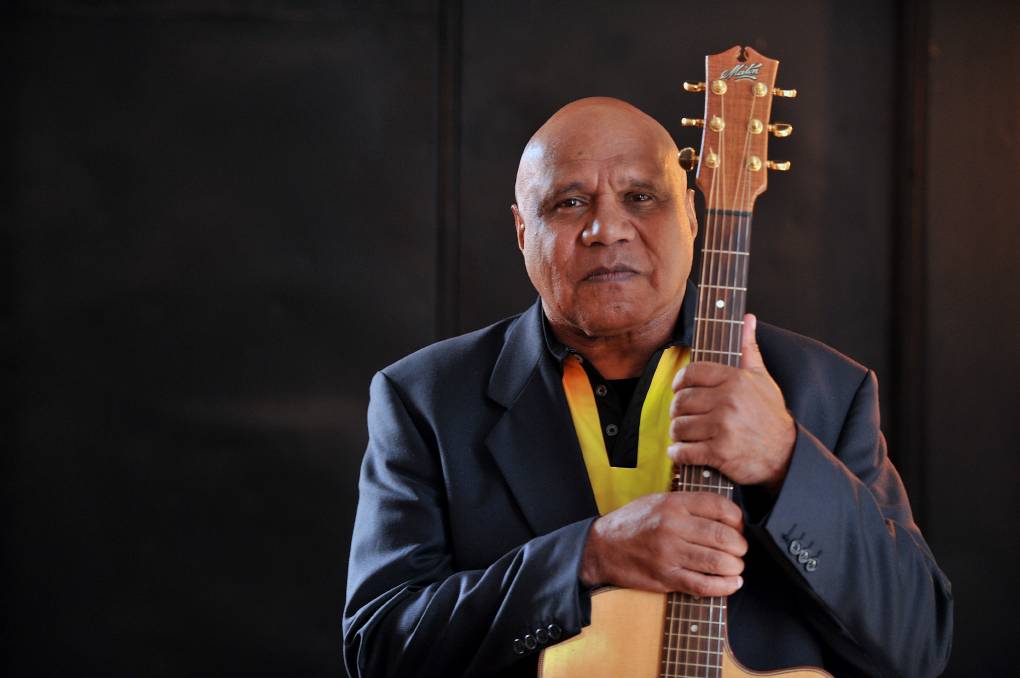
ARCHIE ROACH
I’ve been thinking about how he gave me a chance, back 30-odd years ago, to record. He could have easily said “No”, especially songs like Took the Children Away; “That’s too political”. But he took it on board, and if it wasn’t for him, I suppose I wouldn’t be a recording artist.
LINDA BULL
We appreciated his honesty and his directness – and let’s face it, we don’t have time to muck around in this business. He would say what he thought: “Why are you doing that? That’s shit. I don’t understand why you’d go there and make a film clip. I don’t get that bridge; that could have been a hit.” I liked that; he knew that he could be very direct with [my sister] Vika and I, and we wouldn’t be offended, and that we would take it on board.
MICHAEL CHUGG – Co-founder of Frontier Touring and founder of Chugg Entertainment
I was one of the few people who could pull him up on shit, and he was certainly the only person who could pull me up on shit. One of the things that he and I did on our world travels, when we’d get asked about Australian bands, we’d talk them up. Whether they were ours or not ours – or whether we liked them or not – it was all about Australian music. We had a great relationship; even when we were competitors, we never stole each others’ acts; we’ve never done that shit, or played those games that other promoters play. We always respected each other. I would follow him around the world, and people would continually say to me, “Michael was here last week – he talks really highly of you.” There was always a lot of love, respect and loyalty there; always had been.
CLIVE MILLER – Chief executive of music industry charity Support Act
Michael didn’t really seem to deal in bad news; there was always a solution. There was always something happening; there was always some sort of new project in the works. That must be a trait that he’s had his entire life: he’s always seen opportunity, and was full of excitement about trying to make things happen and get things done. He was nothing but incredibly supportive of Support Act. Initially, he used to observe that we were a little bit Sydney-centric as an organisation. As a result of that, we asked him to fund the employment of our first Melbourne-based social worker, which he did. Since then, we have employed two other staff in Melbourne, as well as the casual social workers we’ve brought on board while ramping up to respond to the COVID-19 pandemic. Last year we had a great association with [Anzac Day TV special] Music From the Home Front, courtesy of Michael, and that raised over $200,000, which was just really incredible. And then for Ausmusic T-shirt Day, we partnered closely with [merchandising company] Love Police, and they co-ordinated our premium T-shirt campaign, which raised $60,000.
HOWARD FREEMAN – Co-founder of music industry charity CrewCare
Michael was an amazing man in the fact that he embraced women in the workforce before it became a popular item; he trusted women in positions of authority and power years and years ago, when it was basically a male-dominated industry. And all power to him for that, because some of those women now are real guns; they’ve got some attitude, they’ve got some grunt and they’ve got some influence. That’s what I celebrate when I think of him.
SAHARA HERALD – Tour director of Frontier Touring
In 2014, I wasn’t sure if I wanted to work in the music industry again. I had recently got out of rehab, and I wasn’t sure if it was a safe place for me to work anymore, as a sober person. It was well-known within the industry that I had previously struggled with addiction issues, but Michael and Matt Gudinski offered me a little part-time gig to start with. Prior to that, I’d had a successful career with the Big Day Out for the best part of 18 years, and had felt very confident and assured in what I was doing. But at that point, I was broken, and the hand that they offered me saved me. They had faith in me when I didn’t have faith in myself. Gudinski used to always joke that he was a gambling man, and he took a punt that I’d come good. And in 2018 he appointed me tour director at Frontier Touring, so I guess he thought his punt paid off. It’s a mark of measure, really, of their faith in people. Michael went out on a limb on a personal level for me, because he had faith in me; he loved the work that I had done, and he knew that I was capable of great things again. He saw that in me, and I’ll always be grateful for it. And in a wonderful full circle, I’m now a mental health advocate with Support Act, the music industry charity that Michael so passionately championed.
LINDA BULL
I think all great people really know how to reinvent themselves on the head of a pin, and under tough circumstances. Everyone I spoke to [at Mushroom] during that time said, “Look, we haven’t lost our jobs. He’s keeping us employed”. That meant so much, and I think he liked the challenge. He had the hunger; he was getting hungrier, actually, as he got older. I think COVID kind of poked the bear, and I think that’s why he responded so powerfully. We all have a lot to thank him for, because he kept us working.
JOHN WATSON
He went headfirst at the pandemic. He deadset did; when most other people in the live music sector, at least, were curled up in a ball in the corner, rocking gently, Michael was the one that was up for it. When we wanted to put a Midnight Oil tour on sale in December of last year, when no-one was putting tours on sale, Michael and his team backed it. That’s rolled around the country, and done really well. He never hesitated; he said, “Yep, let’s do it,” while other promoters were going, “Too risky.”
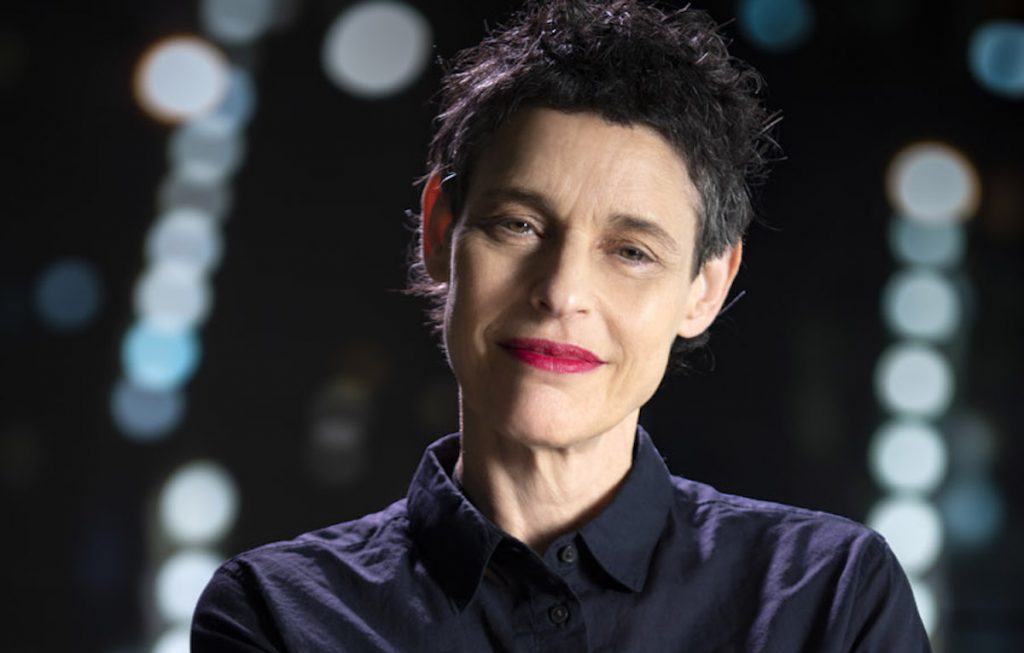
DEBORAH CONWAY
He was a guardian of mad schemes, and he had the fortitude, the finances and the infrastructure to make his mad schemes a reality. And he just went into overdrive last year; he really pulled out all the stops to try and ensure that the entire infrastructure – particularly in Melbourne, but all over the country – didn’t just go belly-up. You had to admire him for that. It felt a bit like pissing in the wind, or the boy with his finger in the dyke – but my God, what incredible passion, enthusiasm, drive and determination he brought to that.
VIKA BULL
When we got our first No 1 album last year, he called and said, “Congratulations. Don’t take this lightly: it’s very hard to get a No 1. Take a moment; celebrate and enjoy it; me and Sue are going to have a red wine for you tonight.” That was when it really hit me; I was in shock when I first heard, but when Michael said it wasn’t an easy thing to do, he’d know. So we did take a moment; we went out and had a glass of champagne. I was really happy to get that phone call from him. Just as we’re starting to hit our stride, and get a lot closer to him, he goes and drops dead. It’s just one of those things; it’s just life. So we’re going to make this next record for him, and make sure that we make a beautiful one, and hope we get another No 1 for him.
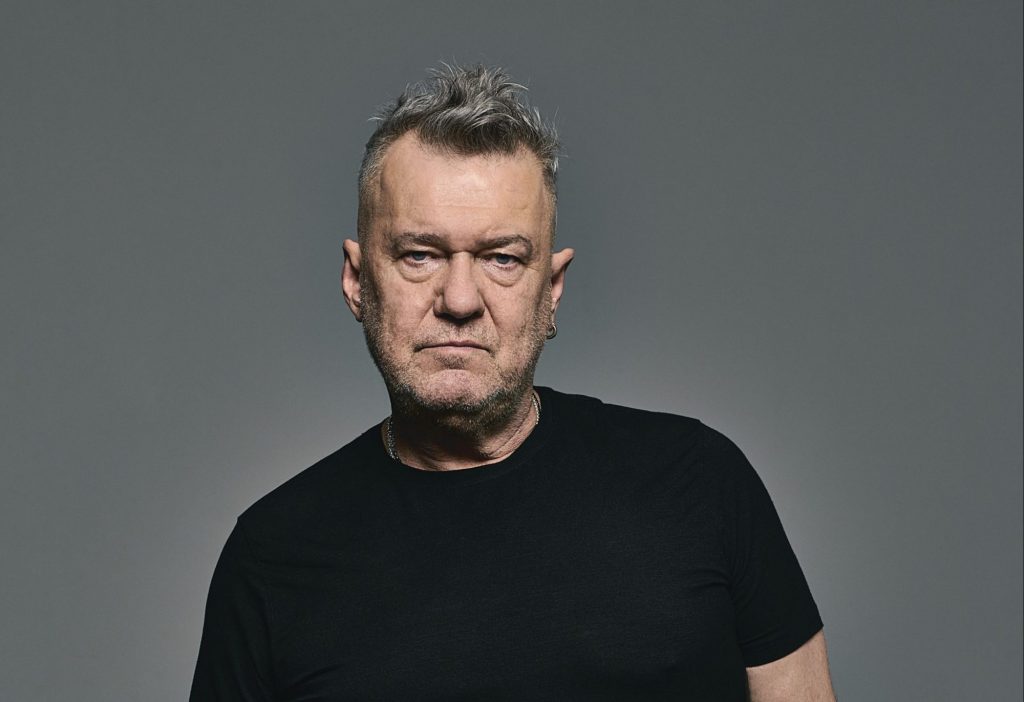
JIMMY BARNES
I thought he’d always be there; since I was a young fella, we’ve done this together. But I’m trying to be philosophical and think that Michael was at peace. As wild as Michael appeared on the surface, he was full of wisdom. I’m trying to use all those things he’s taught me over the years, and trying to keep things as he would like it: climbing. Getting better. Always about getting better. He’d always say, “No matter what, we’ve got to make everything we do better than the last thing we’ve done. Everything counts; every step of the journey is as important as the last.”
MICHAEL ROBERTS
Manager of Mark Seymour and Hunters & Collectors
When something like this happens, it reminds everybody of their own mortality. When somebody with that much drive and enthusiasm can just be there one day and gone the next, everybody goes, “Whoa – I need to rethink some of my priorities as well.” The only good thing in a sea of badness about Michael’s death is that he had a swift death, because Michael never struck me as somebody that would appreciate a slow death. He would hate it. That’s the only glimmer of light that I take out of all this, is that he’s gone to sleep and he hasn’t woken up. Small mercies.
SAHARA HERALD
A few days before he died, he came to the Midnight Oil warm-up show at the Enmore Theatre, and he was positively rambunctious. He was so excited to be back in Sydney, and he was just so enthused and energised about projects that we had that were bubbling away, and new ideas that he had. It was an amazing gig, he had a fantastic time, and he was just buzzing. You know what? He went out on an absolute high, and I’m grateful for that. It wasn’t like Gudinski faded away; he went out loud and proud. He was absolutely in his element, and still at the heights of his power and passion.
This article appeared in the Autumn 2021 edition of Life Begins At… Click here to read or here to subscribe and never miss an issue!










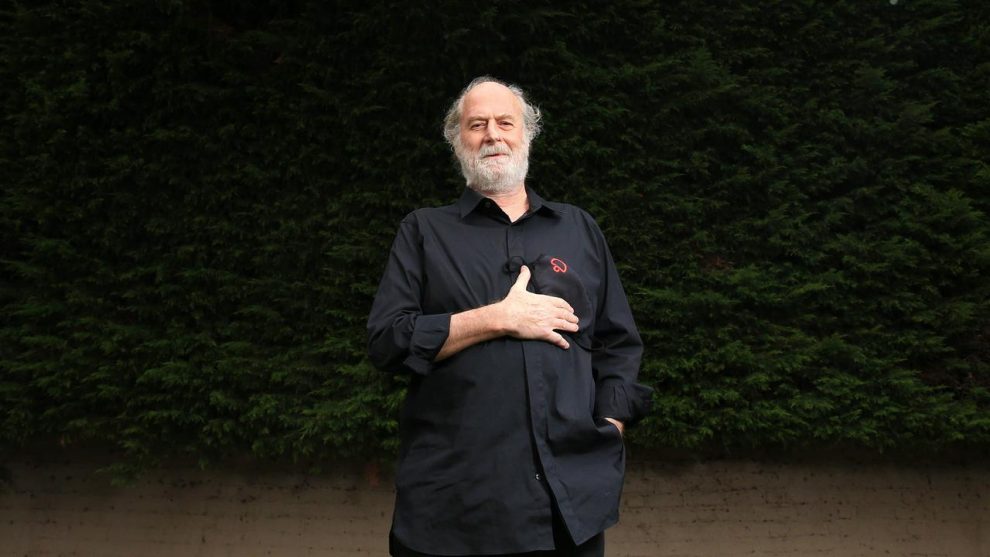













Add Comment